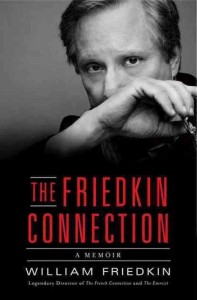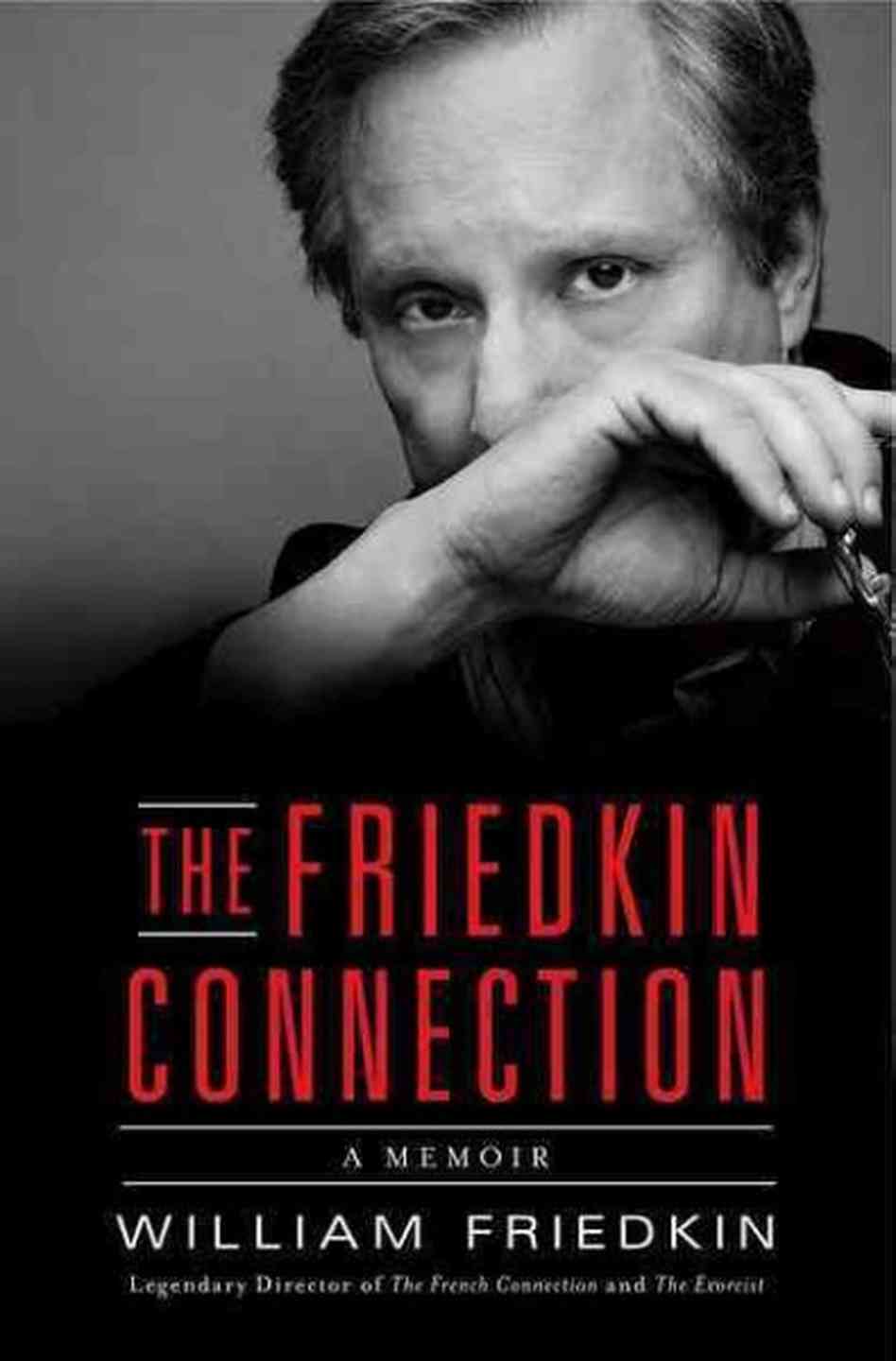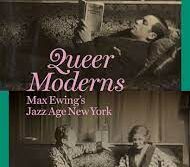 The Friedkin Connection: A Memoir
The Friedkin Connection: A Memoir
by William Friedkin
HarperCollins. 512 pages, $29.99
IN THE 1970s, William Friedkin directed some of the most important works of American cinema, including The French Connection (1971) and The Exorcist (1973)—not to mention The Boys in the Band (1970) and Crusing (1980), two gay-themed films that some GLBT viewers reviled and even publicly protested against. Decades later, the (heterosexual) force behind two of the era’s most visible depictions of gay life shares his personal take in this frustratingly breezy but persistently engaging memoir.
Friedkin explains that he landed the job of adapting playwright Mart Crowley’s popular ensemble drama The Boys in the Band for the screen because Crowley liked his 1968 film adaptation of Harold Pinter’s The Birthday Party. (That the movie was a commercial flop probably also convinced producer Dominick Dunne that the young director could be hired on the cheap.) Friedkin offers little new insight into The Boys in the Band, and not much of a defense against the charge that it is, as one film critic has put it, “a minstrel show of campy, queeny self-hatred staged for a straight audience’s amusement.” But Friedkin’s account of an on-screen kiss that ended up on the cutting-room floor does hint that The Boys in the Band was something of a lost opportunity. The memoir has more to say about Crusing , a lurid crime drama filmed against what Friedkin describes as the “exotic background” of the New York leather and S&M bars of the 1970s. Here he recounts his research into the subcultures depicted in the film and a meeting with the New York mob boss who purportedly controlled the Mineshaft, the bar where the movie was filmed. But he breezes past the extensive protests that accompanied the filming and distribution of Crusing and spends most of his time carping about how much it cost to edit the film down to earn an R (rather than X) rating. He saves his harshest criticism for the cast, settling what are clearly some old scores with star Al Pacino. The Friedkin Connection is a classic Hollywood autobiography, full of tough-talking, up-by-your-bootstraps salty chatter. “Do I have regrets?” Friedkin asks. “You bet.” He certainly has no regrets about Crusing , except maybe for not sticking with Richard Gere, initially cast in the leading role by a director who saw in him “toughness as well as an ambiguous quality.” In fact, there really aren’t any regrets at all. Meetings are taken, flyouts are arranged, names are dropped, all in breathless prose that was probably massaged by an uncredited ghostwriter. And yet it’s nearly impossible to put down. Behind-the-scenes accounts bring to life the 1970s American cinema renaissance. The heroin scenes in The French Connection were shot with actual heroin? The Exorcist was filmed in Iraq? Wait, he knew Cher when she was still Cherilyn LaPiere? Guilty pleasures, though, generate guilt for a reason. William Friedkin’s movies are better than this book: more creative, more daring, and in the end more thought-provoking. A truly insightful account remains to be written, but in the meantime readers of The Friedkin Connection will have to settle, however smilingly, for little more than “exotic background.”
Christopher Capozzola is an associate professor of history at MIT.





